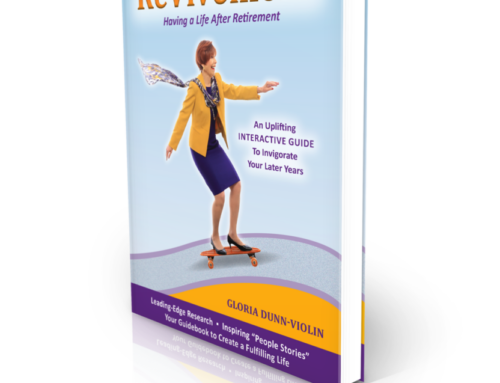“It takes but one positive thought when given a chance to survive and thrive to overpower an entire army of negative thoughts.
Robert H. Schuller, Televangelist
As we get older, we need to be kinder to ourselves. We’ve traversed a good portion of our lives with wonderful and hurtful happenings. Sometimes we’ve risen above them, and sometimes we’ve fallen down. But, here we are today. How can we make the rest of our lives awesome?
One way is to eliminate unhealthy thoughts that still exist in our minds. We don’t deserve them. Better yet, we can diffuse them and toss them out.
If you bash yourself with all kinds of negative thoughts, your mind buys in. You become what you think. On the other hand, if you think of yourself positively, your mind agrees and treats you with respect.
With positive thinking, we are not only happier, but also healthier. If you want a longer life span, less stress, a healthier body, better days, and a positive outlook, a good attitude will do it.
Our minds are very powerful. In fact, they are brilliant. They will take what we say and follow our orders. But, like a computer, we need to program them properly.
Why is it we negate ourselves? Part of it is messages we got in childhood from other people—sometimes well meaning and sometimes just mean. As children, we didn’t know the difference, so we accepted their evaluations, and we have been reinforcing those thoughts ever since. The way we think has become a habit. This habit can continue into our older years if we don’t stunt it now.
Being positive and having a good attitude is not about sticking our heads in the sand, and ignoring what’s going on around us. Instead it is how we interact with it all.
Do we see the glass half full or half empty? Here’s a negative example: I trip over a shoe I left in the hallway. Do I say, “how stupid of me to have left it here.” (notice the word stupid). Or do I say, “oops, better put it away,” and move on. A positive example: “Good job!” for a project you just completed—whether it’s writing a difficult report at work or cleaning out the attic at home, rather than grumbling the whole time you are working on it.
Not only are negative stereotypes hurtful to older people, but they may even shorten their lives, finds psychologist Becca Levy, PhD, assistant professor of public health at Yale University. In Levy’s longitudinal study of 660 people 50 years and older, those with more positive self-perceptions of aging lived 7.5 years longer than those with negative self-perceptions of aging. The study appeared in the Journal of Personality and Social Psychology (Vol. 83, No. 2).
On the other hand, people’s positive beliefs about and attitudes toward the elderly appear to boost their mental health. Levy has found that older adults exposed to positive stereotypes have significantly better memory and balance, whereas negative self-perceptions contributed to worse memory and feelings of worthlessness.
“Age stereotypes are often internalized at a young age–long before they are even relevant to people,” notes Levy, adding that even by the age of four, children are familiar with age stereotypes, which are reinforced over their lifetimes.







